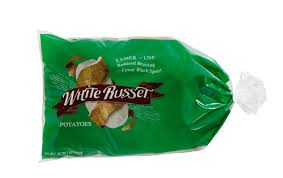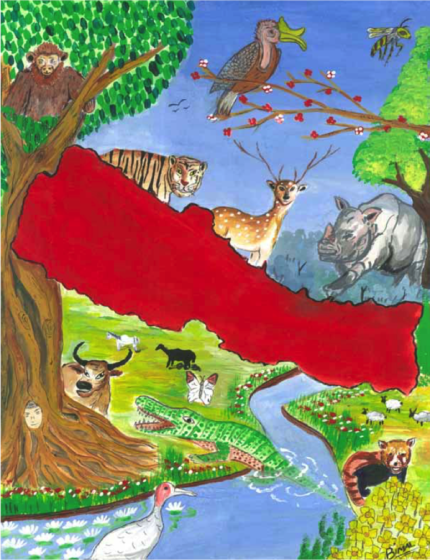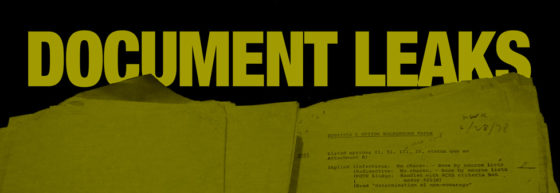“Our mission is to provide the highest quality scientific information and analysis to enable a healthy food system and a healthy world”
The Bioscience Resource Project provides scientific and intellectual resources for a healthy future. It publishes Independent Science News, a media service devoted to food and agriculture, and their impacts on health and the environment. It also offers resources for scientists and educators and internships and training for students. Through its innovative scientific journalism and original biosafety review articles, the project provides unique and revealing perspectives on issues that are fundamental to the survival of people and the planet. The project does not accept advertising or corporate funding and is a non-profit 501(c)3 organization. It is completely dependent on individual donations.We invite you to join the Project as a contributor or a donor.
Bioscience Resource Project News and Views
How France and Germany Are Ousting Glyphosate In A Search For Healthy Soils and Pesticide-Free Crops
The Gates Foundation’s Ceres2030 Plan Pushes Agenda of Agribusiness
Video: Biotechnology, Agrichemicals, and the Value of Life
On a recent trip to Hawai’i, Jonathan Latham, Director of the Project, talked at the University of Hawai’i.
“Industrial agriculture is logically dependent on infringing on the quality of life, often catastrophically, of diverse creatures. The islands comprising Hawai’i exhibit those harms perhaps more than anywhere else on earth. Using new revelations of the Poison Papers (www.poisonpapers.org) as examples of how regulators fail to protect us, I discuss the true extent of those impacts. Even without revelations such as the Poison Papers however, we already know enough to stop supporting industrial agriculture, yet governments continue to do so, showering them with subsidies and other incentives. The reasons they decide wrongly are in part about economics and in part about scientific corruption; but here I point to an underlying conceptual flaw in our collective cultural understanding of life itself. Critiquing our standard, but illogical, modern interpretation of the nature of life is an overlooked key to understanding the the tragic and disastrous policies and practices prevailing in agriculture. But immediately obvious too is that the misunderstanding of life pervades much more broadly–into the justice system, into education, and into healthcare, to name just a few of those domains.”
Hidden Health Dangers: A Former Agbiotech Insider Wants His GMO Crops Pulled
Published today (Mon Oct 8th, 2018) on Independent Science News: Hidden Health Dangers: A Former Agbiotech Insider Wants His GMO Crops Pulled, written by Caius Rommens, PhD.
Synopsis: J.R. Simplot is a potato processing and marketing company, based in Idaho, that has recently launched GMO potatoes with supposedly enhanced disease resistance, enhanced uniformity, and improved healthiness. However, according to Caius Rommens, Simplot’s former lead potato breeder, the reality is very different. As a crop, the potatoes contain genetically unstable traits, suffer a significant yield drag, are designed to conceal bruises and spread diseases, and are intended to be grown and stored in ways that maximize disease and pest pressures. Additionally, as a processed food, they have lost the sensory attributes that make normal potato-based foods attractive. Even worse, they likely contain dramatically increased toxins that may cause health safety issues. Furthermore, the development of these GMO potatoes involved at least one act of biopiracy. Nevertheless, these GMO potatoes are quietly entering the marketplace with innocuous names such as Innate Potato, White Russett, and Hibernate – and others will follow. All this and more is described in a short new book, “Pandora’s Potatoes”, written by Caius Rommens, the inventor of these potatoes.
Caius Rommens, PhD, was a researcher at UC Berkeley, then Monsanto, and later started the biotech program at J.R. Simplot. He has authored
Read the full story at: https://www.independentsciencenews.org/health/hidden-health-dangers-former-agbiotech-insider-gmo-crops/

U.S. Right to Know’s New Report: Cornell Alliance for Science is a PR Campaign for the Agrichemical Industry
U.S. RTK Report synopsis:
Despite its academic-sounding name and affiliation with an Ivy League Institution, the Cornell Alliance for Science is a public relations campaign to promote genetically engineered foods and pesticides. With $12 million in funding from the Bill & Melinda Gates Foundation, the Cornell Alliance for Science claims to be working to “restore the importance of scientific evidence in decision-making,” however, the examples in this fact sheet show that the group:
- Misleads the public with inaccurate information about science;
- Elevates unreliable messengers who make false and unscientific claims; and,
- Partners with front groups that have worked with the tobacco industry or chemical industries to manufacture doubt about science that raises health concerns.
The evidence suggests the Cornell Alliance for Science is using Cornell’s name, reputation and authority to promote the talking points and political agenda of the world’s largest agrichemical corporations.
The Gates Foundation helped launch the Cornell Alliance for Science in 2014 as an effort to “depolarize the charged debate” around genetically modified foods (GMOs). The Gates Foundation Deputy Director Rob Horsch, who worked for Monsanto Company for 25 years, leads the foundation’s agricultural research and development strategies, which have drawn criticism for relentlessly promoting GMOs and agrichemicals in Africa over the opposition of Africa-based groups and social movements, and despite many concerns and doubts about genetically engineered crops across Africa.
READ U.S. Right to Know’s FULL REPORT AT: https://usrtk.org/our-investigations/cornell-alliance-for-science-is-a-pr-campaign-for-the-agrichemical-industry/
Plants, Animals, and Poems of Nepal: Illustrated Children’s e-books by Ann Mayer
Ann Mayer volunteered for many years as an editor for the Bioscience Resource Project and Independent Science News. Since retiring as a volunteer, she has been writing and publishing beautifully illustrated children’s poetry books to draw attention to the endangered, exotic, and endemic plants and animals of Nepal. Her books have been illustrated by children from the US and Nepal and have been given for free to many children in Nepal, so they can learn more about the special plants and animals of their country.
To learn more and to download her three beautifully illustrated books of poems for free, go to: https://bioscienceresource.org/nepal-ebooks-ann-mayer/

